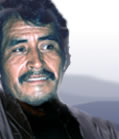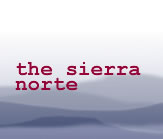 |
 |
||
 |
|||
|
GLOSSARY Mexico glossary |
transcriptThe translation of this interview consists of extracts only. |
| Section 1 | What do you think, now that you are an official, what do you think of the villageís decision to fight for the conservation and protection of these resources for the future generations? As the grandfathers thought before us, we also think now - this decision that the ciudadanos (citizens) have almost repeated. As an official, you listen to this in the asamblea (community parliament). Well as I said, there have been many years of dispute with these communities [AmatlŠn and Lachatao Ė the mancomunados Ė communities which are united and share land] and not only with words - a legal procedure is also being taken. We have our lawyers, who are with us, who take care of the process of the documents. We are ensuring that everything goes to order and I hope that this matter finishes and we can say, with every right, that the forest, flora, fauna and water sources should be respected.... ...Yes, itís true that there are plagues (infestations?) at times, but in reality, we donít necessarily have to open highways, and bring in work vehicles; we can look for other way to destroy this plague. Itís like we often say here, the plagues arenít of four feet but two. |
You grew up here and youíre almost at the entrance to the village up there. How did your parents teach you to respect the forest? For example, when you went to get firewood, did they show you places? Do you know the forest? Yes, I know practically all of that area and I also know parts of our neighbouring communities, all their forest, I know all the land that they have. Well, one learns on the trips, with the passing of time. One gets to know all types of vegetation, we know thousands of plants that are here - medicinal plants, ornamental plants - animals that are in danger of extinction, like the macaw, the white-tailed deer and the Cardinal bird. In short many that you donít see now, because there are some that are almost only in books now. We know them because there were a lot of macaws before, there were many that I canít remember now, that we used to see before and they did damage to the sown fields, but not anymore. One doesnít see them now for the same reason that, well, there isnít much vegetation now, I imagine that itís all because of this. |